A hardcover edition of this book was published in 1999 by Eagle Brook, an imprint of William Morrow and Company, Inc.
CULTURE JAM . Copyright 1999 by Kalle Lasn. All rights reserved under International and Pan-American Copyright Conventions. By payment of the required fees, you have been granted the non-exclusive, non-transferable right to access and read the text of this ebook on-screen. No part of this text may be reproduced, transmitted, down-loaded, decompiled, reverse engineered, or stored in or introduced into any information storage and retrieval system, in any form or by any means, whether electronic or mechanical, now known or hereinafter invented, without the express written permission of HarperCollins ebooks.
First Quill edition published 2000.
The Library of Congress has catalogued the hardcover edition as follows:
Lasn, Kalle.
Culture jam: the uncooling of America / Kalle Lasn.1st ed.
p. cm.
Includes bibliographical references.
ISBN 0-688-15656-8
1. Mass media and culture. 2. Mass mediaInfluence. 3. Mass media and the environment. 4. Mass media criticism. 5. Popular culture. 6. Social movements. 7. Intercultural communication.
1. Title.
P94-6.L37 1999
9918409
302.23dc21
CIP
ISBN 0-688-17805-7 (pbk.)
EPub Edition AUGUST 2013 ISBN: 9780062234636
05 06 07 08 09  / RRD 30 29 28 27 26 25 24 23 22 21
/ RRD 30 29 28 27 26 25 24 23 22 21
For my beloved mother, Leida Lasn,
and for Masako Lasn, my partner in life
my teachers Kristjan Lasn.
Fritz Schumacher, Marshall McLuhan,
Guy Debord
my friends Ron Coxhead, Bill Schmalz,
Geoff Rogers, Hideo Iso, Doug Tompkins,
Tadao and Hanae Tominaga
and for my mortal enemy, Philip Morris Inc.,
which I vow to take down
This book was written in a close, intense.
two-year collaboration with my friend
Bruce Grierson. Without his perseverance
and magic way with words, it would never
have seen the light of day.
James MacKinnon weighed in near the
end with a flurry of brilliant ideas.
Ingrid Richardson and Katherine Dodds
were my philosophical gurus. Ryan Bigge
and Paul Shoebridge kept it on the tracks.
Allan Casey, Cat Simril, Charles Dobson,
Sid Tafler, Jurgen Hesse. Jonathon Priddle.
John Mraz. Kyle Frederiksen. Hilary Keever and
Jordan Reeves critiqued the various drafts.
Joann Davis took out all the swear words.
The book youre holding carries a message that your first instinct will be to distrust. That message is, We can change the world . Its risky these days to make such a promise because it sounds like one of those meaningless awaken the inner gianttype bromides: If you can dream it, you can do it, The journey of a thousand miles begins with a single step, and so on.
But its true. Were serious. We call ourselves culture jammers. Were a loose global network of media activists who see ourselves as the advance shock troops of the most significant social movement of the next twenty years. Our aim is to topple existing power structures and forge major adjustments to the way we will live in the twenty-first century. We believe culture jamming will become to our era what civil rights was to the 60s, what feminism was to the 70s, what environmental activism was to the 80s. It will alter the way we live and think. It will change the way information flows, the way institutions wield power, the way TV stations are run, the way the food, fashion, automobile, sports, music and culture industries set their agendas. Above all, it will change the way we interact with the mass media and the way in which meaning is produced in our society.
We are a very diverse tribe. Our people range from born-again Lefties to Green entrepreneurs to fundamentalist Christians who dont like what television is doing to their kids; from punk anarchists to communications professors to advertising executives searching for a new role in life. Many of us are longtime activists who in the midst of our best efforts suddenly felt spiritually winded. For us feminism had run out of steam, the environmental movement no longer excited, the fire no longer burned in the belly of the Left, and youth rebellion was looking more and more like an empty gesture inspired by Nike. We were losing.
Then we had an idea. Maybe if we banged together the heads of all these activists and reconfigured the fragmented forces of identity politics into a new, empowered movement, we could start winning again.
We werent looking for it necessarily, but each one of us in our own way has had a political awakening; a series of very personal moments of truth about ourselves and how the world works. For some, these insights have come on like powerful, secular epiphanies. Sometimes they have been triggered by things we overheard or read or stumbled upon. Sometimes they have involved things we thought we knew but now, suddenly, felt . These truths have left us shaken; its no exaggeration to say they have changed our lives. Id like to share with you some of the insights that have occurred to me over the last decade or so.
America is no longer a country. Its a multitrillion-dollar brand . America is essentially no different from McDonalds, Marlboro or General Motors. Its an image sold not only to the citizens of the U.S.A., but to consumers worldwide. The American brand is associated with catch-words such as democracy, opportunity and freedom. But like cigarettes that are sold as symbols of vitality and youthful rebellion, the American reality is very different from its brand image. America has been subverted by corporate agendas. Its elected officials bow before corporate power as a condition of their survival in office. A collective sense of powerlessness and disillusionment has set in. A deeply felt sense of betrayal is brewing.
American culture is no longer created by the people . Our stories, once passed from one generation to the next by parents, neighbors and teachers, are now told by distant corporations with something to sell as well as to tell. Brands, products, fashions, celebrities, entertainmentsthe spectacles that surround the production of culture are our culture now. Our role is mostly to listen and watchand then, based on what we have heard and seen, to buy.
A free, authentic life is no longer possible in America today . We are being manipulated in the most insidious way. Our emotions, personalities and core values are under siege from media and cultural forces too complex to decode. A continuous product message has woven itself into the very fabric of our existence. Most North Americans now live designer livessleep, eat, sit in car, work, shop, watch TV, sleep again. I doubt theres more than a handful of free, spontaneous minutes anywhere in that cycle. We ourselves have been branded . The human spirit of prideful contrariness and fierce independence has been oddly tamed. We have evolved into a smile-button culture. We wear the trendiest fashions, drive the best cars industry can produce and project an image of incredible affluencecool people living life to the hilt. But behind that happy mask is a face so ugly it invariably shocks the hell out of my friends from developing countries who come to visit, expecting the giddy Americana depicted on TV and finding instead a horror show of disconnection and anomie.
Our mass media dispense a kind of Huxleyan soma . The most powerful narcotic in the world is the promise of belonging. And belonging is best achieved by conforming to the prescriptions of America. In this way a perverted sense of cool takes hold of the imaginations of our children. And thus a heavily manipulative corporate ethos drives our culture. Cool is indispensableand readily, endlessly dispensed. You can get it on every corner (for the right price), though its highly addictive and its effects are short-lived. If youre here for cool today, youll almost certainly be back for more tomorrow.

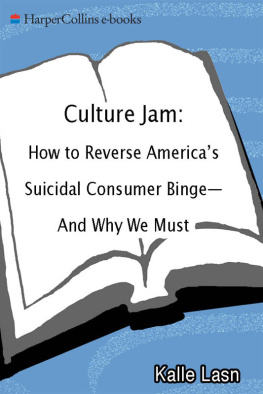

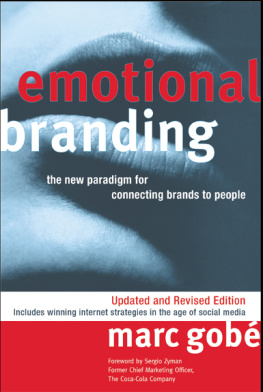
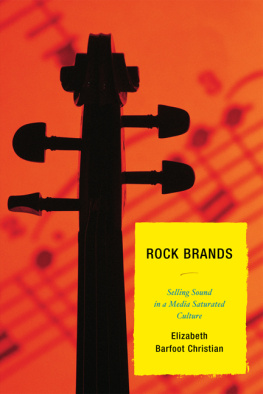
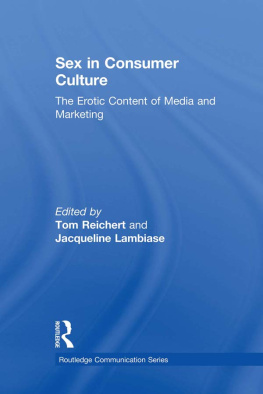
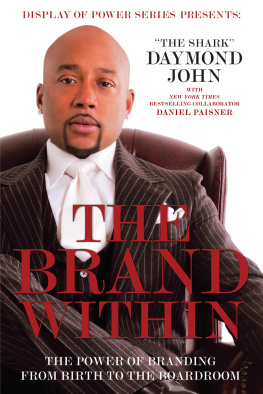

 / RRD 30 29 28 27 26 25 24 23 22 21
/ RRD 30 29 28 27 26 25 24 23 22 21